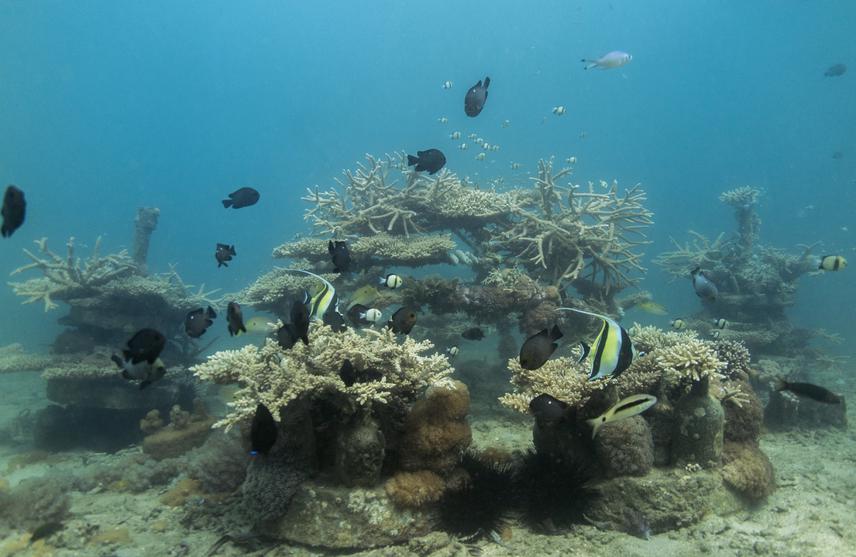Social media video featuring the project.
The Reef Stewardship Video.
17 Jan 2023 Shimoni, Kenya, Africa Marine | Communities | Corals | Ecotourism | Education
Enhancing Conservation Education Using Nature-Based Films Shows to Local Schools and Communities Living Adjacent to the Ol Pejeta Conservancy
Marine restoration has become a popular conservation intervention to rehabilitate different marine habitats and ecosystems. Coral reef restoration is a good example offering renewed hope in restoring degraded coral reef patches and accelerating recovery of reef ecosystems. In Shimoni, south coast of Kenya, an active reef restoration is ongoing involving local communities and other stakeholders. While local communities are involved through the Beach Management Units and other community-based groups, majority of villagers depending on the ocean as subsistence fishers and tourists’ boat operators remain in a dilemma to visibly understand modern marine restoration and why it is important. This is in relation to restrictions arising from the process of coral reef restoration and creation of the locally managed marine areas (LMMAs) somehow pushing them off their traditional fish zone. The LMMAs acts as fish breeding zone and suitable sites for reef restoration. Though the local people possess inherited traditional knowledge on conservation practises, there is a knowledge gap to catch-up with emerging conservation knowledge, modern interventions needed to successfully adapt to current challenges of an overfished and degraded reef and a growing population.

Coral reef restoration showing different artificial reef structures i.e. bottle reefs, layered cake and cages in Mkwiro Community Managed Area in the Wasini Channel, Shimoni, Kenya. © Ewout Knoester
To address this dilemma, the project aim is to put locals abreast with emerging modern marine restoration knowledge, basic responsible tourism practices, and build on authentic guiding skills among marine tourism guides for best tourist’s experiences. The project adapts a hands-on approach to achieve this objective through indoor and outdoor training workshop and dialogue sessions. The target project audience includes local boat operators, subsistence fishers and young learners. The overall goal is to cultivate and instil a strong marine stewardship among the local communities as a call of action culture to protect, conserve marine ecosystem, and sustainably use of fishery resources and improved responsible tourism practises. The expected project outcomes are 1) increased reef stakeholders’ engagement and dialogue about marine conservation, 2) better understanding of modern marine conservation and interventions, and 3) promoting responsible tourism experiences through improved guiding skills and create awareness on responsible tourism practises.
Header: A beautiful view in the Kisite Marine Park, south coast of Kenya with traditional dhows and boats as visitors' experience the park through snorkeling or diving. © Joshua Wambugu.
Social media video featuring the project.
The Reef Stewardship Video.
Articles featuring the project.
Promoting ocean literacy with experiential learning and comic art